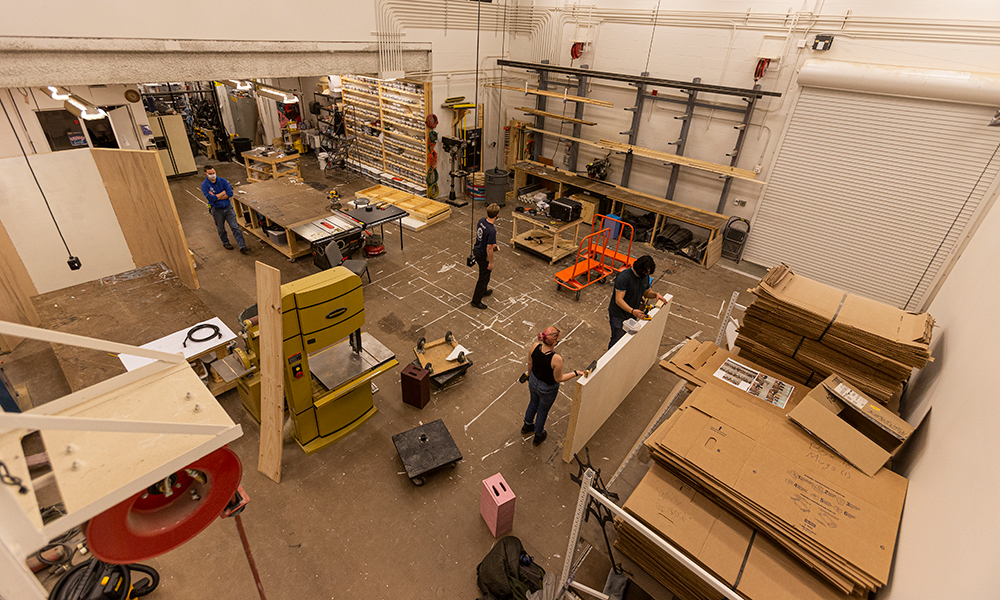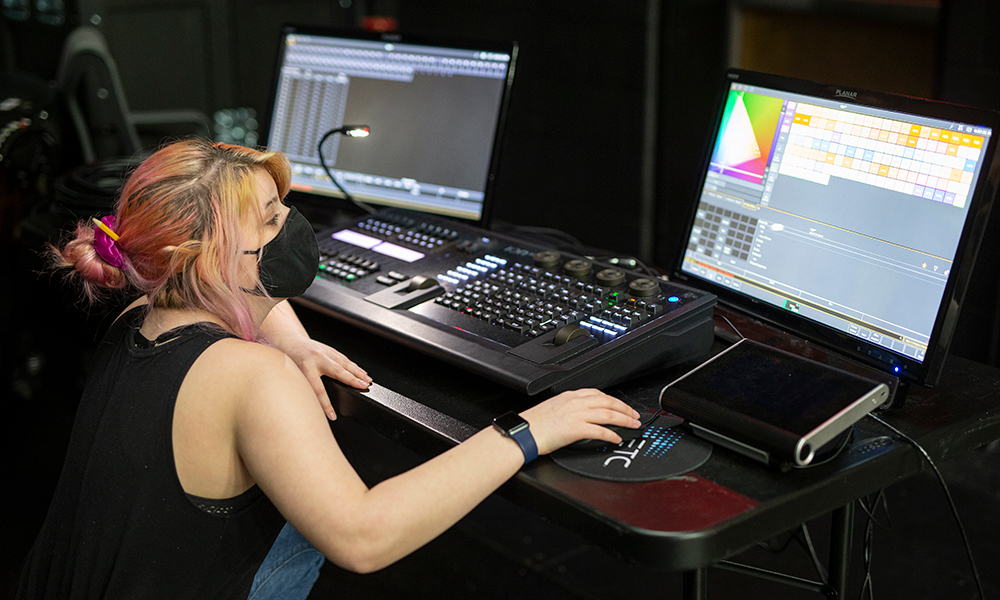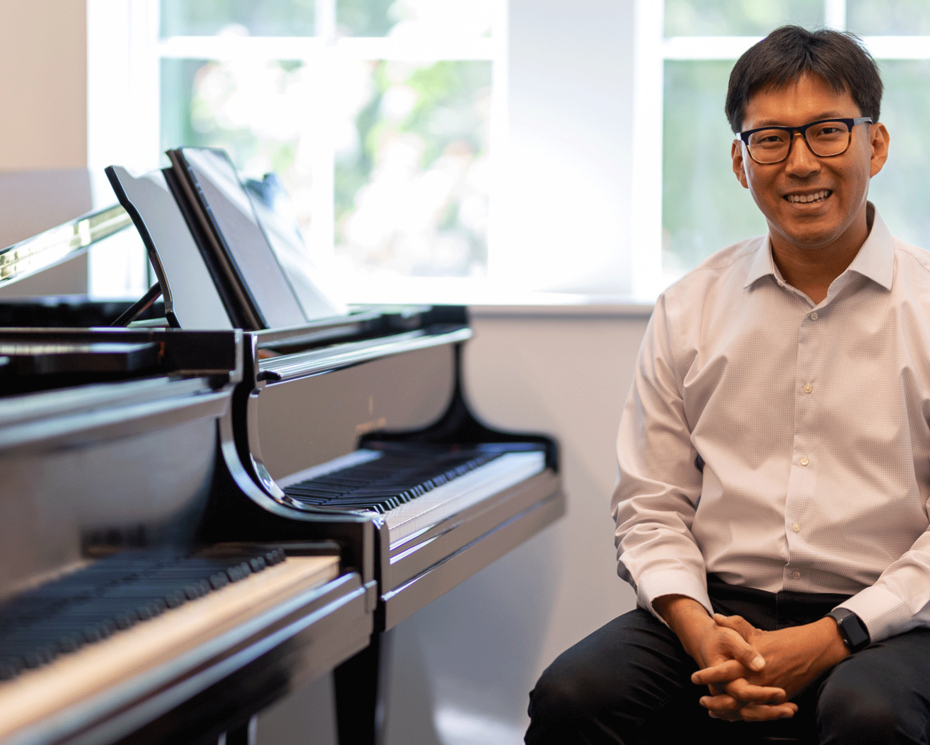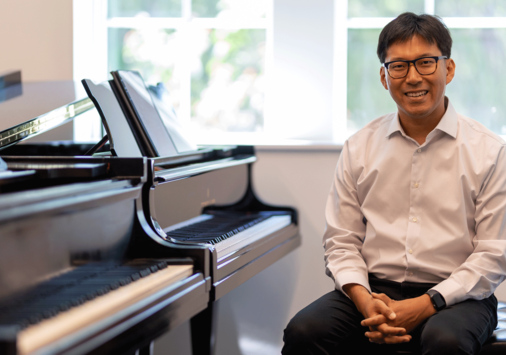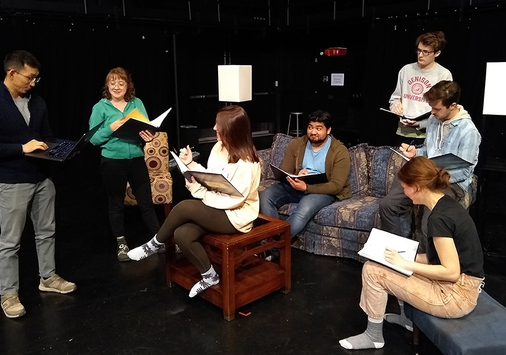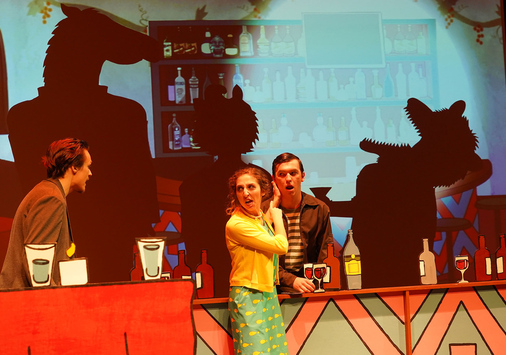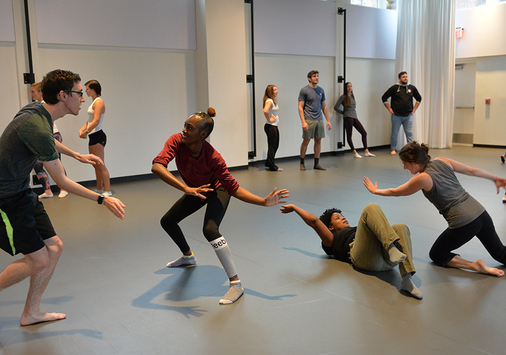The performing arts “home on The Hill” is housed in The Michael D. Eisner Center for the Performing Arts, a world-class facility that houses music, dance and theatre. Andy Johns began as Technical Director in the Scene Shop at Denison in 2001 in our former Ace Morgan Theatre and was an integral member of the Denison design team for the Eisner Center and helped coordinate the construction, implementation, and commissioning of all Technical Performance elements within the Center. Owen Beamer ‘12 started in 2018 and serves as Assistant Technical Director.
Andy Johns shares his thoughts on why working with students is an integral and important part of his job. And Alyssa Gebhart ‘22, an Education major, gives a glimpse of what a typical day in the scene shop might look like.
Technical Director, Andy Johns
How did you get involved in this tech side of productions?
I have been doing this type of work since I was in High School. I have been very fortunate to have been continuously employed in some form of Technical Theatre since then, even throughout college. I do enjoy this type of work, and it has allowed me to see a lot of the country and make lifelong friends and colleagues. I can also say that I have rarely done any production the same way twice. The same show or script, yes, but always in a new imaginative way. This is a very collaborative career.
How does the Denison Scene shop work with the student team?
We hire and train a fair number of students to work in the scene shop who install the scenery, lighting, audio and video elements of the shows we do here in the Eisner. We also hire students to run the concerts and shows as crew members. Our jobs would be impossible without the student crews.
What have you learned working in the scene shop?
Be prepared for a huge variety of requests from the artists we collaborate with. Along with the various skills we need to have (carpentry, electrical engineering, metal fabrication, painting, sewing, computer and networking skills) we also need to be able work with a wide variety of personalities and have good communication skills. We are always learning new ways to support the shows and also keep up to date on new technologies.
What does a typical day in the life in the scene shop look like?
Mornings are usually taken up with meetings, planning and managing our resources. We have usually reserved afternoons for crew members who are either training, installing a production, helping us manage the shop and various storage areas. Some evenings we are on hand to run the concerts and shows that the Eisner Center produces.
Thank you so much for sharing your unique perspective with us! Is there anything else you’d like to add?
The performing arts support that we provide can offer our students a wide range of skills that are easily transferred into many other careers and industries. Time management, people skills, collaborative skills, resource management, and even a few skills that can help with owning a home or starting a crafting job.
Alyssa Gebhart ‘22, Education major
Describe your typical day working in the scene shop.
A typical day in the scene shop changes based on what sorts of projects we’re working on. We can go from building and painting sets to focusing lights to organizing props. No matter what we are working on though, the goal is to get as much training on technical theatre as possible.
How do the students collaborate with the faculty in the scene shop?
The students and the faculty within the scene shop have a strong connection. Andy and Owen are always extremely understanding about our college stresses and always find some way to cheer us up. They’re always willing to put up with us ranting about our life problems and have created a little family where we all feel safe and welcomed.
What is your favorite part of the job? How about the most challenging part?
My favorite part of the job (currently) is our Friday game time we implemented this semester. The goal is for team bonding even though all us employees are already so close. I would say the most challenging part is when we end up with really tough sets to build. Some are easier than others, but because the set is such a major piece of any performance, there always seems to be more pressure. Wallpapering is also a challenge we’ve faced recently (I will never be wallpapering my house).
